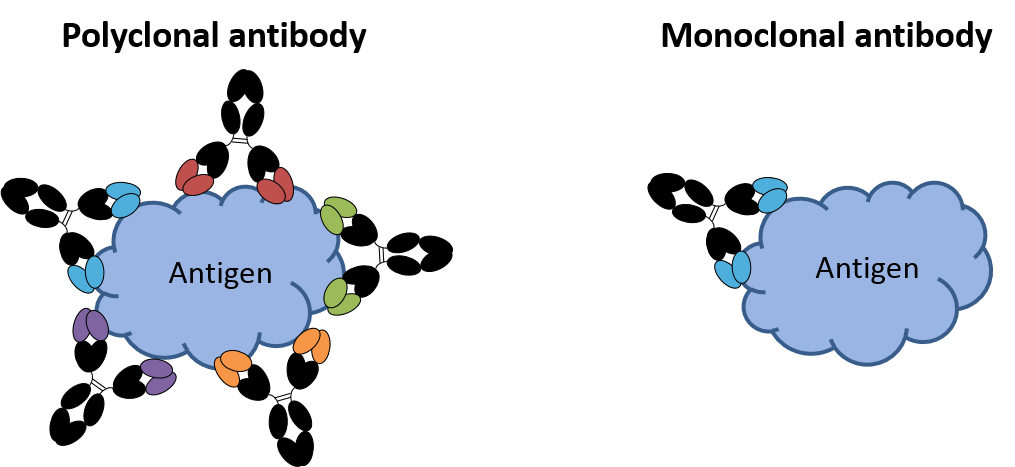jargon: noun. Special words or expressions that are used by a particular profession or group and are difficult for others to understand. [g]
The point of this blog’s “pharma jargon” series is to highlight key words commonly encountered in drug discovery research.
There are two broad classes of therapeutics, small molecules and biologics. Small molecules are the most prevalent drugs on the market, but biologics (aka therapeutic proteins) are a trending area of research and development. Monoclonal antibodies fall into the latter category.
Monoclonal antibodies are actual proteins that lead to therapeutic benefits. This proteins recognize specific antigens on the outside of the problematic (e.g., cancerous) cells and bind to them. The result of this binding may be to flag these cells for another role, or even deposit cell poisons that were transported by the antibody for release after arrival.
Contrasting from small molecule pharmaceuticals, biologics are more specific for their target, leading to fewer unintended negative effects (aka off-target toxicities). However, they are limited in working only outside the cell and can’t affect proteins inside the cell. Furthermore, biologics usually must be injected else these proteins would be broken down in the digestive tract.
Addendum (8/2/17)
I was talking to someone recently about monoclonal antibodies, and they were confused on the monoclonal part, since an antibody is already unique for some antigen. The monoclonal part means that the antibody binds to the same region of the antigen upon recognition. Monoclonal antibodies have the advantage in that they are usually much more specific for the antibody, in terms of thinking of producing some therapeutic compound. Here’s an image showing the difference:
References

